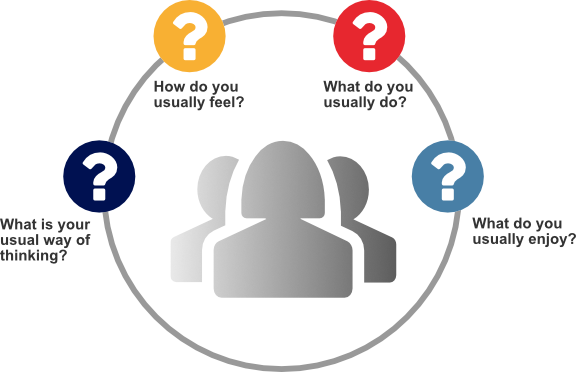Everyone is different and everyone will experience mental health in a different way. *Knowing what kinds of thoughts, feelings and behaviours are 'typical or usual' for an individual can serve as an important baseline in assessing mental health. Figure 4 outlines some questions that may be helpful in assessing what is 'usual' for each person.

Figure 4: Know what is "usual" for you
Knowing what is usual when it comes to a person's mental health can assist in recognizing when things deviate from what is typical. Seeking help early on can make a significant difference in one's wellbeing and influence the course of mental health problems.
Sometimes it can be difficult for people with NDD to recognize signs of mental health distress. Further, individuals with NDD may experience difficulties and distress differently than those in the general population. For example, distress may not be visible to an outsider or may not be expressed in ways that might be expected. People with NDD may also have difficulty expressing needs, desires or feelings in a way that people without knowledge of NDD can understand.
Due to some of the above challenges, even well trained professionals who are unfamiliar with NDD may fail to recognize mental health challenges or to see mental health challenges as separate from the NDD itself. Therefore, using the concept of knowing what is usual for each person can serve as an important gauge for when to reach out for mental health support.
* This concept is based on Know Your Normal by Ambitious about Autism.